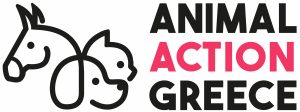Animal welfare in Greece is often misunderstood, with many myths leading to misinformation and inaction. At Animal Action Greece, we work tirelessly to improve the lives of animals, and part of that mission involves debunking common misconceptions. Here are some of the most widespread myths and the truth behind them…
Myth 1: Stray animals are fine on their own
Many people believe that stray animals in Greece can fend for themselves. While some manage to survive, many suffer from malnutrition, disease, and injuries. Without intervention, their quality of life is severely compromised. Neutering, feeding programs, and veterinary care are essential to improving their welfare.
Myth 2: Neutering Is cruel and unnecessary
Some believe that neutering is unnatural and deprives animals of their right to reproduce. Unfortunately, it is a well-researched fact that Greece is currently facing a serious stray cat and dog overpopulation crisis and neutering is one of the most humane and effective ways to reduce the suffering of stray populations. It prevents the birth of countless unwanted animals who would otherwise struggle to survive on the streets.
Myth 3: Working equines are well taken care of
Donkeys, mules and horses used for tourism and transport are often seen as strong and resilient. While some owners do care for their animals properly, many working equines suffer from exhaustion, improper nutrition, and lack of veterinary care. Advocacy and education are crucial to improving their conditions, which we support through our Equine Program.
Myth 4: Adopting a stray is risky because they are aggressive or sick
Stray animals can be loving and loyal companions when given proper care. Many strays are simply victims of abandonment or hardship. With medical treatment, socialisation, and patience, they can thrive in a home environment just like any other pet.
Myth 5: There is enough animal welfare laws in Greece
While Greece does have animal welfare laws, enforcement is often inconsistent. Many cases of neglect and abuse go unreported, and penalties are not always strict enough to deter mistreatment. Continued advocacy and public pressure are essential for stronger protections.
Myth 6: Only large organisations can make a difference
While organisations like us play a crucial role, individual efforts also matter. Whether through adopting, fostering, donating, reporting abuse, or simply spreading awareness, everyone can contribute to improving animal welfare in Greece.
Final thoughts
Misinformation can hinder efforts to improve animal welfare. By debunking these myths, we hope to encourage more people to act and support initiatives that truly make a difference for Greece’s animals.
Stay informed, spread awareness, and join us in making Greece a better place for animals!






